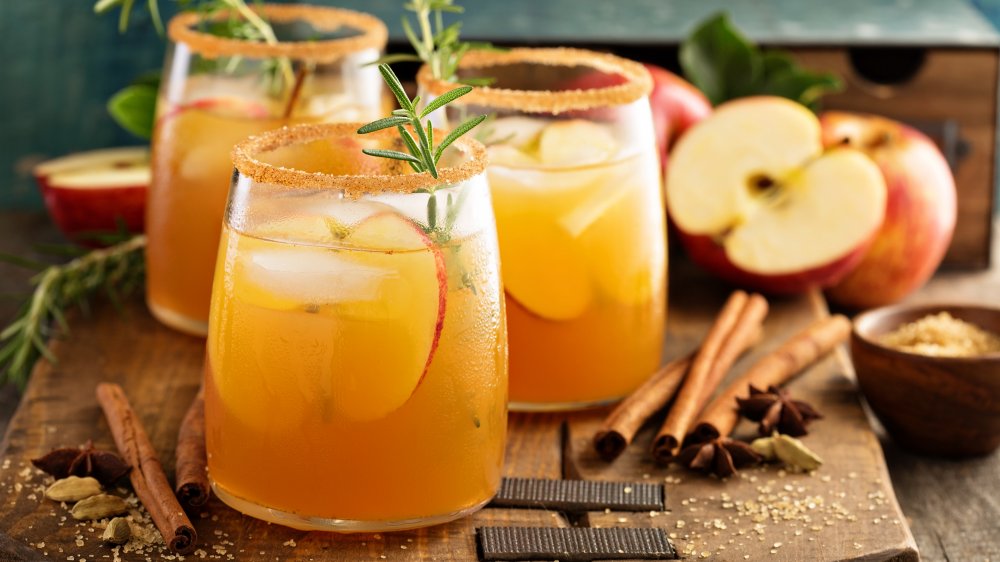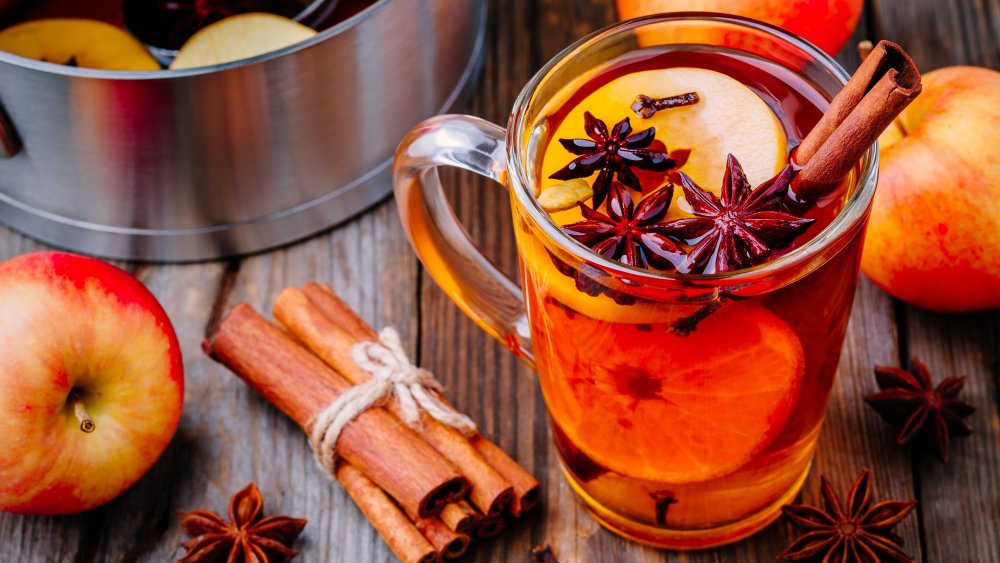The Real Difference Between Apple Juice And Apple Cider
Depending on what your preferences might be, the coming of fall and cooler weather could mean that pumpkin spice season is upon us while traditionalists might see this as a time to head to specialty stores for a bottle of fresh apple cider. But as much as you might love apple cider, you might not be able to help but wonder whether the difference between juice and cider comes down to semantics, particularly when you see the price difference between a bottle of commercially bottled apple juice and a bottle of fresh-pressed apple cider.
The answer is: it depends.
The rules for what constitutes juice or cider differs across states (via The Kitchn). In places like Massachusetts, fresh cider is made with apple mash, which might look like applesauce (via Tasting Table). It then gets wrapped in cloth and pressed into juice. The liquid isn't filtered to remove pulp or sediment, creating a bottle of unpasteurized, cloudy cider that's naturally sweetened. It's also possibly full of yeasts that might trigger fermentation. Let it sit for too long, and you're likely to get a fizzy alcoholic beverage.
More processing is involved to make apple juice
In Massachusetts and states with similar regulations, apple juice is far more processed than its cousin, cider. Apple juice has all the solids removed. The liquid is pasteurized, making it more shelf-stable, and it may be sweetened with added sugar. Massachusetts apple juice is also clearer and has a lighter color than cider.
In other states, the distinction is less clear or nonexistent. If you really want to get confused, the company Martinelli's states in its FAQ that apple juice and apple cider are identical except for their labels. The company says, "Both are 100 percent pure juice from U.S. grown fresh apples. We continue to offer the cider label since some consumers simply prefer the traditional name for apple juice" (via Mental Floss). The U.S. Apple Association even says that apple juice can be made from concentrate, which means its label may list water as one of the first ingredients.
So if you're a fan of real, natural pressed apple cider, you may want to move to Massachusetts, wait until pumpkin spice season, pick up a bottle, and drink up before it turns into something else altogether.

